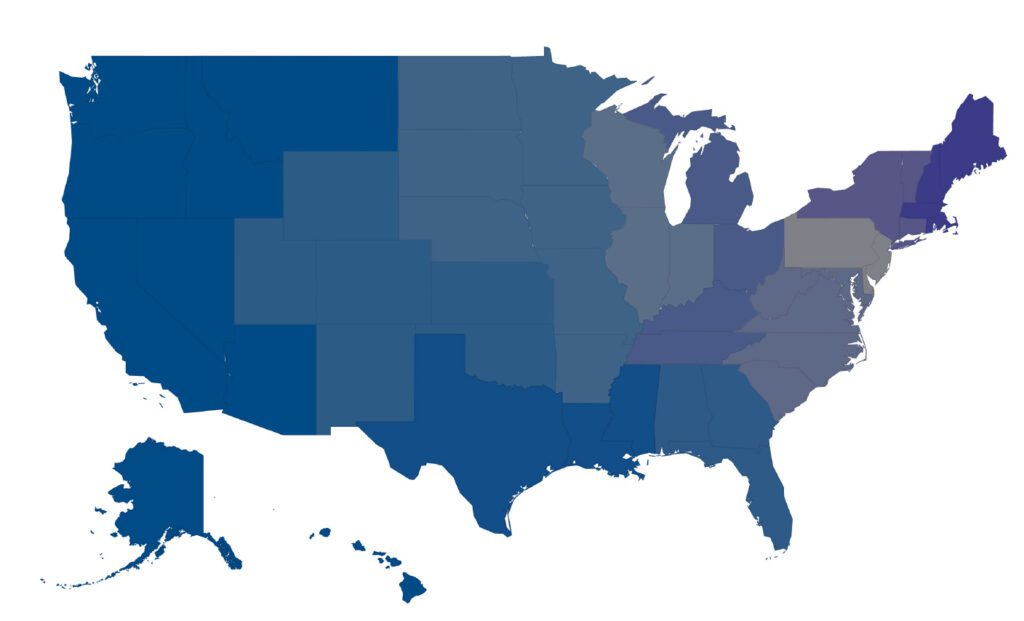Indiana Rules of Court
Rule 62 (D) – Stay upon appeal
“(D) Stay upon appeal.
(1) Procedure for obtaining. No appeal bond or other security shall be necessary to perfect an appeal from any judgment or appealable interlocutory order. Enforcement of a judgment or appealable interlocutory order will be suspended during an appeal upon the giving of an adequate appeal bond with approved sureties, an irrevocable letter of credit from a financial institution approved in all respects by the court, or other form of security approved by the court. The bond, letter of credit, or other security may be given at or after the time of filing the notice of appeal. The stay is effective when the appeal bond, letter of credit, or other form of security is approved by the appropriate court. The trial court or judge shall have jurisdiction to fix and approve the bond or letter of credit and order a stay pending an appeal as well as prior to the appeal. If the stay is denied by the trial court the appellate tribunal may reconsider the application at any time after denial; and this provision also shall apply to stays or relief allowed under subdivision (C) of this rule. When the stay or relief is granted by the court on appeal, the clerk of the Supreme Court shall issue a certificate thereof to the clerk of the court below who shall file it with the judgment or order below and deliver it to the sheriff or any officer to whom execution or an enforcement order has been issued.
(2) Form of appeal bond or letter of credit. Whenever a party entitled thereto desires a stay on appeal, such party may present to the appropriate court for its approval an appeal bond or an irrevocable letter of credit from a financial institution. The bond or letter of credit shall be conditioned for the satisfaction of the judgment in full together with costs, interest, and damages for delay, if for any reason the appeal is dismissed or if the judgment is affirmed, and to satisfy in full such modification of the judgment and such costs, interest, and damages as the appellate court may adjudge and award. When the judgment is for the recovery of money not otherwise secured, the amount of the bond or letter of credit shall be fixed at such sum as will cover the whole amount of the judgment remaining unsatisfied, costs on the appeal, interest, and damages for delay, unless the court after notice and hearing and for good cause shown fixes a different amount or orders security other than a bond or letter of credit. When the judgment determines the disposition of the property in controversy as in real action, replevin, and actions to foreclose liens or when such property is in the custody of the sheriff or when the proceeds of such property or a bond or letter of credit for its value is in the custody or control of the court, the amount of the appeal bond or letter of credit shall be fixed at such sum only as will secure the amount recovered for the use and detention of the property, the costs of the action, costs on appeal, interest, and damages for delay.[…]”
IN Code § 34-49-5-3
“(a) An appeal bond that an appellant must post to stay execution on a judgment while an appeal is pending may not exceed twenty-five million dollars ($25,000,000) regardless of the total amount of the judgment.
(b) Notwithstanding subsection (a), if an appellee proves by a preponderance of the evidence that an appellant is dissipating assets outside the ordinary course of business to avoid payment of a judgment, a court may enter orders that:
(1) are necessary to protect the appellee; and
(2) require the appellant to post a bond that is equal to the total amount of the judgment.”

**In Federal cases the bond requirement is governed by Federal Rule of Civil Procedure “62(b) Stay by Bond or Other Security. At any time after judgment is entered, a party may obtain a stay by providing a bond or other security. The stay takes effect when the court approves the bond or other security and remains in effect for the time specified in the bond or other security.”**
The information contained on our site is for general information purposes, and you should consult with your attorney for the most up to date civil code or local rule that applies to your case.
Choose the State...
Experience the CSBA Difference today
Expert Guidance • First-Class Service • More Options








